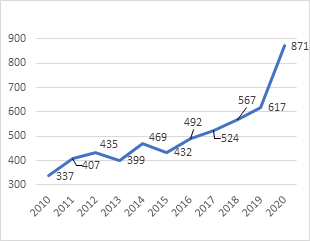A new paper published ONLINE FIRST with free OPEN ACCESS in the Journal of Population Economics finds that elections indeed matter. It has implications for postal voting reforms or postponing of large-scale, in-person (electoral) events during viral outbreaks.
Do elections accelerate the COVID-19 pandemic?
by Ján Palguta, René Levínský & Samuel Škoda
Published OPEN ACCESS ONLINE FIRST PDF 2021: Journal of Population Economics

Author Abstract: Elections define representative democracies but also produce spikes in physical mobility if voters need to travel to polling places. In this paper, we examine whether large-scale, in-person elections propagate the spread of COVID-19. We exploit a natural experiment from the Czech Republic, which biannually renews mandates in one-third of Senate constituencies that rotate according to the 1995 election law. We show that in the second and third weeks after the 2020 elections (held on October 9–10), new COVID-19 infections grew significantly faster in voting compared to non-voting constituencies. A temporarily related peak in hospital admissions and essentially no changes in test positivity rates suggest that the acceleration was not merely due to increased testing. The acceleration did not occur in the population above 65, consistently with strategic risk-avoidance by older voters. Our results have implications for postal voting reforms or postponing of large-scale, in-person (electoral) events during viral outbreaks.

EiC Report 2020
SSCI IMPACT FACTOR 2.813 (2020) from 1.840 (2019) & 1.253 (2018)
SSCI 5-Year Impact Factor 3.318 (2020) from 2.353 (2019) & 2.072 (2018)
Journal of Population Economics
Access to the recently published Volume 34, Issue 4, July 2021. 10 articles on Covid-19 all freely accessible.
LEAD ARTICLE OF ISSUE 4, 2021:
The impact of repeated mass antigen testing for COVID-19 on the prevalence of the disease
by Martin Kahanec, Lukáš Lafférs & Bernhard Schmidpeter
OPEN ACCESS: Free Readlink – Download PDF
The Global Labor Organization (GLO) is an independent, non-partisan and non-governmental organization that functions as an international network and virtual platform to stimulate global research, debate and collaboration.
Ends;

